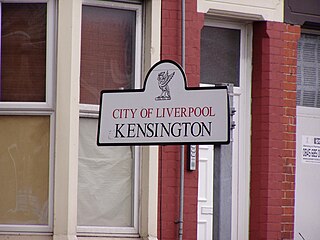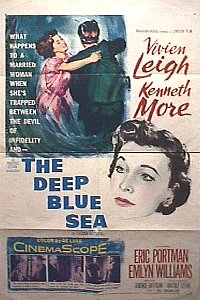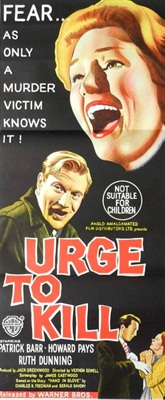
The United Kingdom has had a significant film industry for over a century. While film production reached an all-time high in 1936, the "golden age" of British cinema is usually thought to have occurred in the 1940s, during which the directors David Lean, Michael Powell, and Carol Reed produced their most critically acclaimed works. Many British actors have accrued critical success and worldwide recognition, such as Audrey Hepburn, Olivia de Havilland, Vivien Leigh, Glynis Johns, Maggie Smith, Laurence Olivier, Michael Caine, Sean Connery, Ian Mckellen, Joan Collins, Judi Dench, Julie Andrews, Daniel Day-Lewis, Gary Oldman, Emma Thompson, Anthony Hopkins and Kate Winslet. Some of the films with the largest ever box office returns have been made in the United Kingdom, including the fourth and fifth highest-grossing film franchises.
Sight and Sound is a monthly film magazine published by the British Film Institute (BFI). It has conducted the well-known ten-yearly Sight and Sound Poll of the Greatest Films of All Time since 1952.
Terence Davies was a British screenwriter, film director, and novelist. He is best known as the writer and director of autobiographical films, including Distant Voices, Still Lives (1988), The Long Day Closes (1992) and the collage film Of Time and the City (2008), as well as the literary adaptations The Neon Bible (1995), The House of Mirth (2000), The Deep Blue Sea (2011), and Sunset Song (2015). His final two feature films were centered around influential literary figures, Emily Dickinson in A Quiet Passion (2016) and Siegfried Sassoon in Benediction (2021). Davies was considered by some critics as one of the great British directors of his period.
Robert Hamer was a British film director and screenwriter best known for the 1949 black comedy Kind Hearts and Coronets and the now acknowledged 1947 classic It Always Rains on Sunday.

James Lewis Hoberman is an American film critic, journalist, author and academic. He began working at The Village Voice in the 1970s, became a full-time staff writer in 1983, and was the newspaper's senior film critic from 1988 to 2012. In 1981, he coined the term "vulgar modernism" to describe the "looney" fringes of American popular culture.
The London Film Critics' Circle is the name by which the Film Section of The Critics' Circle is known internationally.

Kensington is an inner city area of Liverpool, England, immediately to the east of the city centre, bordered by Everton to the north, Fairfield to the east and Edge Hill to the south.
Paul Farley FRSL is a British poet, writer and broadcaster.

The Deep Blue Sea is a 1955 British drama film directed by Anatole Litvak, starring Vivien Leigh and Kenneth More, and produced by London Films and released by Twentieth Century Fox. The picture was based on the 1952 play of the same name by Terence Rattigan.

Andrew Schofield is an English actor best known for starring as the Narrator in Willy Russell’s original production of the musical Blood Brothers in 1983, and playing Johnny Rotten in Alex Cox's 1986 film Sid and Nancy.

It Always Rains on Sunday is a 1947 British film adaptation of Arthur La Bern's novel of the same name, directed by Robert Hamer. The film has been compared with the poetic realism movement in the French cinema of a few years earlier by the British writers Robert Murphy and Graham Fuller.

The Neon Bible is a 1995 drama film written and directed by Terence Davies, based on the novel of the same name by John Kennedy Toole. The film is about a boy named David coming of age in Georgia in the 1940s. His abusive father enlists in the army during World War II and disappears, leaving David to take care of his mother with his Aunt Mae, who is a singer. It was filmed in Atlanta, Crawfordville and Madison, Georgia.

The Halfway House is a 1944 British drama film directed by Basil Dearden and starring Mervyn Johns, his daughter Glynis Johns, Tom Walls and Françoise Rosay. The film tells the story of ten people who are drawn to stay in an old Welsh countryside inn. Location scenes were shot at Barlynch Priory on the Devon/Somerset border.
Iain Forsyth and Jane Pollard are British artists and filmmakers.

Of Time and the City is a 2008 British documentary collage film directed by Terence Davies. The film has Davies recalling his life growing up in Liverpool in the 1950s and 1960s, using newsreel and documentary footage supplemented by his own commentary voiceover and contemporaneous and classical music soundtracks.

Hurricane Films is a film production company based in Liverpool, England. It has produced both documentaries and fiction films at both short and feature length. It is best known for Terence Davies' feature-length documentary Of Time and the City (2008).

Urge to Kill is a 1960 British second feature serial killer film directed by Vernon Sewell and starring Patrick Barr, Ruth Dunning and Terence Knapp. It is based on the 1942 novel Hughie Roddis and 1944 play Hand in Glove, both by Gerald Savory.

The Falling is a 2014 British mystery drama film written and directed by Carol Morley. It stars Maisie Williams and Florence Pugh as best friends at an all-girls school. The film also stars Greta Scacchi, Monica Dolan, Maxine Peake, and Mathew Baynton. Production began in October 2013. The film premiered at the BFI London Film Festival on 11 October 2014 and was released theatrically on 24 April 2015 in the UK.
The BFI Production Board (1964-2000) was a state-funded film production fund managed by the British Film Institute (BFI) and "explicitly charged with backing work by new and uncommercial filmmakers." Emerging from the Experimental Film Fund, the BFI Production Board was a major source of funding for experimental, art house, animation, short and documentary cinema, with a continuing commitment to funding under-represented voices in filmmaking.

Eileen Davies is an English actress, nominated for Best Supporting Actress at the British Independent Film Awards 2012 for her performance in the film Sightseers, her roles have included “Flora McArdle” in the TV serial Coronation Street and as Joan Murfield in EastEnders and Molly in Allelujah (2022).













